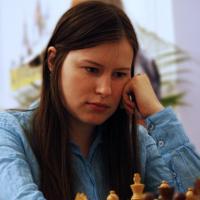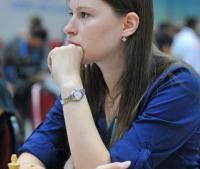
The Coveted Titles
Here and there we can hear about people either wanting to earn a chess title, or wondering how and what for they are earned. Instead of offering a link to a formal encyclopedic page about this matter, I would rather share with you some insights based on my professional experience.
What are titles used for?
Titles are a sign of official recognition of a person’s playing strength at a certain period. Once you earn one, you get to keep it for the rest of your life. The main functions of titles are as follows:
- Bragging rights. Some players are particularly proud of their titles, and hang the diploma on the wall next to a PhD certificate or other prestigious awards. As the general public associate proficiency in chess with a high IQ and other valuable personal qualities, the title-holders believe that it will improve their image. Spoiler: each title-holder gets a cute diploma and a badge, but wearing the badges is widely considered to be goofy and old-fashioned. Now you know why there are no pics available of pros with GM/IM badges.
- Creating a hierarchy among players. Generally speaking, at first you fight for a rating/grade. Then titles come into play. Having a title is beneficial in terms of getting special conditions from organizers, becoming a more recognized coach or author, finding sponsors or receiving stipends from certain institutions, free memberships from top chess websites, etc. Afterwards, when you surpass the grandmaster mark, it’s about rating, achievements (like winning national, continental, international championships and super tournaments) and popularity. The top players are known by last names or nicknames (Kaspy, Topa, Chucky, Moro, etc.), so adding a title next to their names is somewhat belittling. As a fellow GM pointed out, “When you say GM Kasparov, you probably mean Sergey Kasparov from Belarus, otherwise it’s simply Kasparov”.
- Source of money for FIDE. To apply for an international title, one normally has to pay a fee to both FIDE and the national federation. For example, to become a GM-elect, one has to provide about $500. If your application is declined (e.g. due to some mistake in the papers), you don’t get the title and lose the money, having to re-apply. All this hassle (collecting tournament reports, contacting your federation, waiting for a few months for the decision) and expenses are the reason why many people don’t apply for every title they are eligible for. All this results in non-titled players rated 2300-2500.
FIDE and local titles
The official titles recognized by FIDE as of today and most typical ways of earning them are:
Candidate Master/Women’s Candidate Master – reach a published FIDE rating of 2200/2000
FIDE Master/Women’s FIDE Master – reach a published rating of 2300/2100
International Master/Women’s International Master – reach a published rating of 2400/2200 and earn three norms
International Grandmaster/Women’s International Grandmaster – reach a published rating of 2500/2300 and earn three norms
In case you are interested, you can check out the FIDE handbook for some additional special ways of earning a title.
The professional chess community is rather snobbish, so, due to historical reasons and cultural stereotypes, the candidate master titles are widely frowned upon by adults and rarely applied for. FIDE Master (aka “fee master” among some venomous pros) is a semi-professional title that can be earned, for instance, via winning the Amateur World Chess Championship. IM/WIM and GM/WGM are professional titles also known as “master” and “grandmaster”.
While many countries have their own local titles, those are not as widespread as the international ones granted by FIDE. As Chess.com is most popular among US players, I guess there is no need to elaborate on the American system of titles. Russia also has its own classification of grades (4th, 3rd, 2nd, 1st, candidate master) and titles (master of Russia, grandmaster of Russia). Naturally, as a way of showing off, the requirements for becoming a Master of Russia /Grandmaster of Russia greatly surpass those for IM/GM, so very few players have them.
How hard is it to earn a title?
Depending on how easy or challenging it was for a certain individual to reach his current chess level, the estimates differ. Seasoned club players tend to believe that special talents are called for to become FM or above. Elite grandmasters like Aronian or Grischuk will tell you that mediocre studies and lack of talent may still take you up to 2500. The truth is probably somewhere in the middle. I would also like to emphasize that one should be playing chess only if he loves the game, not for the sake of earning the title. This approach will both help save nerves and ensure you are not wasting time in case something does not work out. I would also like to abstain from giving any numbers in terms of how many years are required: this is highly individual, and depends on how productively you study and play. Just one remark for day-dreamers: even the world’s best chess prodigies have to dedicate from 8 to 10 years of persistent work to become GMs. For most grandmasters it takes much longer. Nonetheless, I regularly get messages from beginners and club players along the lines of “Hi, I like chess and want to become a GM in a year or two. Any advice?”
Rating inflation and new titles
There are always some past-oriented people who will be telling you that “2500 in 1980 is worth 2700 in 2011” and generally implying that the old masters were better than the current ones, as well as making claims about “rating and title inflation”. This statement is only partially true: when the GM title was officially introduced by FIDE in 1950, it was awarded to 27 world class players, potential or past WC challengers. Nowadays there are over 1300 GMs in the world, and the difference in skill is huge: an old and rusty grandmaster may be rated 2300, while Carlsen, Anand and Aronian are hovering above 2800.
On the other hand, the statement about rating inflation is neither confirmed by my professional experience, nor by logic or by recent studies. Computer technologies have revolutionized the game and greatly enhanced the speed of mastering chess. Nowadays you don’t have to live in the USSR to get access to recent games, useful educational materials, top coaching, and regular tournament practice. The Internet and software have made it possible for anyone to reach a great level of mastery previously available only to a select few. Therefore, as pointed out in a recent scientific paper quoted by Forbes, there is no rating inflation (and maybe even a slight deflation) going on. It’s just that more and more people are becoming proficient at chess and earning the GM title. Btw, the requirements for obtaining it are also not static: earlier one had to perform at 2500+ level to gain a norm; now the requirement is 2600+. That does make a difference for many people.
As to introducing new titles: I don’t think it is that necessary. The rating and person’s name pretty much speak for themselves. Of course, FIDE could establish the super GM title (for 2700+, 2750+, being in the top-10-20-50-whatever). However, I am not sure it would change much as of now, as most people rated over 2700 are still young and well-known: there isn’t much difference in saying “Nakamura” and “super GM Nakamura”, is there? In the future, however, this might become a reasonable step towards acknowledging some veterans’ achievements.
Personal touch
As I get LOTS of questions regarding my title, here’s a recap:
2001 – I became Woman FIDE Master
2002 – Woman International Master and Master of Russia
2004 – Woman Grand Master (and at about that time met all the requirements for IM)
2006 – Grandmaster of Russia (#101 in the history of the country!)
While I have met the rating requirement for the GM title (2500+), I still need to play more in men’s events to earn enough norms. In fact, the only benefits of earning this title will be a) that few women have it – only 25 in the history of the game b) people will stop bugging me with the question “why WGM, not GM?”. Guess it’s worth the effort. 
Back to chess
Today’s annotated game will be round 9 of the Polugaevsky Memorial against FM Artur Dimukhametov. Earlier he beat my husband with White in an IM-event in Moscow, so some revenge was called for! 






